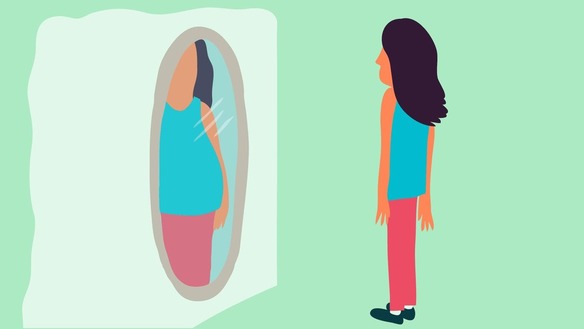 Michelle Zorine, BS “You are not alone” is a phase I have used many times as a volunteer crisis counselor with the Crisis Text Line. This phrase rings especially true when I must use it with texters who struggle with body image or an eating disorder. While I have been in recovery for several years now, each time I get a texter who describes what they are going through, I feel as though I am reading my own diary. And it really is true; we are far from the only ones. The lifetime likelihood of developing an eating disorder for women is between 1.0% to 22.7% and though symptoms may vary in duration, severity, and type, they can impact all parts of a woman’s life. The American Psychiatric Association defines eating disorders as: “behavioral conditions characterized by severe and persistent disturbance in eating behaviors and associated distressing thoughts and emotions”. Anorexia, Bulimia, and Binge Eating disorder are the three most common, each having their own physical and nonphysical symptoms. Some symptoms of Anorexia are severely limiting food intake or a fear of gaining weight, Binge Eating Disorder symptoms includes consuming large amounts of food in a short period of time even after feeling and Bulimia symptoms includes inappropriate compensatory behaviors after an episode of binge eating. Eating disorders are linked to a decreased quality of life, with lower scores of overall, emotional, and psychological wellbeing compared to the general population. Comorbidity with other psychological conditions, such as depression and anxiety is common with eating disorders and can make the conditions worse. While the exact cause of eating disorders remains unknown, it is believed to be of a combination of genetics and social environmental causes. In females, puberty begins around 8 to 13 years old, and the mean age of eating disorder onset is 12.5. During puberty, the sudden rise of hormones causes the body to change rapidly, which may leave the adolescent feeling unhappy with their body. In a study on French school children, maturation during puberty in girls was shown to be related to a decrease in physical self-esteem associated with body fat. Since eating disorders tend to begin during this period of immense change, I began to wonder if eating disorder rates would also increase during perimenopause. Perimenopause is the transition that begins around the ages of 45 to 55 when circulating estrogen wanes and eventually ceases, which is then called menopause. As a research assistant collecting data from women in midlife (around age 50), I hear many women make negative comments about their bodies during measurements. Though some of these women play it off as a joke, these comments may display a trend- that this period of change may have a negative impact on body image. Scientific literature supports this hypothesis. The rates of eating disorders during menopause are statistically higher than the rates before or after menopause, and it is thought to be correlated with one specific hormone: estrogen. The activation of estrogen during puberty drives cellular and behavioral responses to the body during this time, which is shown to play a role in eating disorder development in twin studies. Similarly, body image and disordered eating behaviors vary throughout a woman’s menstrual cycle in parallel with estrogen. During perimenopause, the level of estrogen begins to fluctuate greatly and eventually decreases, which may help explain why eating disorders increase during this time. The fluctuation of hormones during the menopausal transition also causes body composition and weight to change, which could lead the woman wishing she looked like she did before. It is essential that clinicians, researchers, and women themselves are aware of this window of vulnerability. During this menopausal transition, eating disorders can develop and current eating disorders may worsen. Clinicians have the opportunity to prepare their pre-menopausal patients for these changes and provide support. Women entering midlife should be conscious of potential changes in thoughts around food and their bodies. If you are struggling, you are NEVER truly alone. Recovery is possible. Visit the National Eating Disorder Association for more information: National Eating Disorders Association. If you are in a crisis and need help immediately, text their acronym “NEDA” to 741741 to speak with a trained crisis text line counselor or call (800) 931-2237. About the Author:Michelle is currently a research assistant at Project Viva. She graduated from Michigan State University in May ’22 with a BS in Human Biology and a minor in Bioethics. During her time at MSU, she worked as a Research Assistant and mentor at a pediatric/adolescent mental health clinic and as a phlebotomist at an outpatient lab. In her free time, she loves to go on road trips, go hiking and play tennis.
0 Comments
Your comment will be posted after it is approved.
Leave a Reply. |
©2017 WeighingInBlog. All rights reserved. 401 Park Drive, Boston, MA




 RSS Feed
RSS Feed

